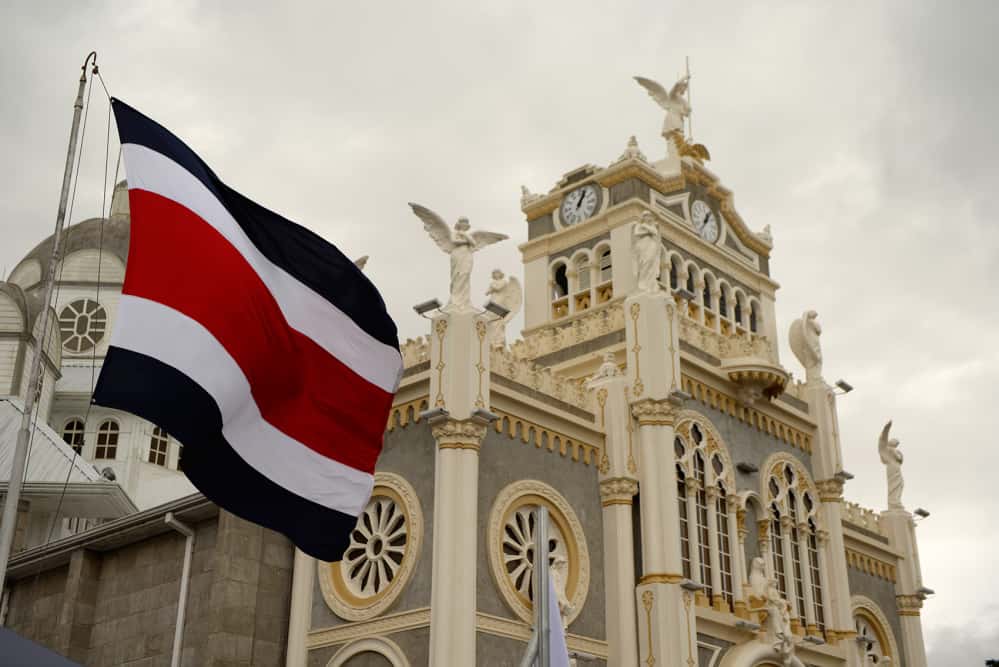From Chile to Mexico, Latin America has not been immune from allegations of the sexual abuse of minors perpetrated by priests and those within the Catholic Church.
Pope Francis has called priests and other Catholics who abuse children “tools of Satan” and has promised to combat the scourge.
Chile: According to official figures, as of 2019 more than 200 members of the Chilean Church have been investigated for more than 150 cases of sexual abuse, while more than 240 victims have been identified, of which 123 were minors. The most notorious case was that of the influential priest Fernando Karadima, who was convicted in 2011 by the Vatican of sexual abuse of minors when he ran the parish of El Bosque, in an affluent neighborhood of Santiago, between 1980 and 2006. Although he was expelled from the priesthood, he was not tried by civil courts when the prescribed denunciations were considered. A later law declared the sexual abuse of minors “imprescriptible”.
Mexico: The Catholic Church has faced several scandals in Mexico in recent years, although the largest is that of the Legionaries of Christ. According to a report updated through last March, the Legionaries recognize that 170 minors were victims of sexual abuse committed by 27 priests between 1941 and 2019. The vast majority were adolescent men between 11 and 16 years old. Of those 27 priests, three died without being tried, and two have been convicted in the criminal jurisdiction. The rest have not been processed for various reasons, among others the statute of limitations. In the ecclesiastical sphere, of the 27 priests, two died without being tried, 16 were sanctioned, eight are in a canonical procedure and one received a dispensation from the ministry without trial.
Nicaragua: At least 13 cases of sexual abuse were reported in Nicaragua years ago, but none came to trial in the country, according to outside groups. The most notorious case was that of Marco Dessi, an Italian priest tried and convicted in Italy for abusing five children in the Nicaraguan department of Chinandega, where he lived for 30 years. During the trial, 100 new complaints emerged. He died in his native country in 2016.
El Salvador: In December 2016, the Catholic Church dismissed three Salvadoran priests – Juan Francisco Gálvez, Antonio Molina, and Jesús Delgado – after being found guilty of sexual abuse of minors.
Guatemala: Three cases were registered in Guatemala, including that of the parish priest Ignacio López, who was sentenced in September 2018 to 16 years in prison for the abuse of a teenage girl in the city of Puerto Barrios, some 295 km northeast of the capital. According to the prosecution, the priest “repeatedly abused the minor” and used threats and his position of power to ensure her silence. The other two priests named continue to work for the Church in seminaries.
Costa Rica: The most notorious case in recent times in Costa Rica is that of former priest Mauricio Víquez, who was arrested in Mexico in 2019 after fleeing the country. This former spokesperson for the Costa Rican Church, famous for his defense of traditional marriage, will soon face a trial for sexual abuse, rape, attempted rape and dissemination of child pornography, among other crimes.
Peru: The Peruvian civil justice has sentenced at least three priests to prison for sexual abuse in recent years. The allegations of abuse and convictions coincided with the election of Pope Francis in March 2013. The best known case is that of the layman Luis Fernando Figari, founder of Sodalitium Christianae Vitae (SDC, Sodalicio de Vida Cristiana), a conservative apostolic society founded in 1971 and later officially elevated by Pope John Paul II. Based on the testimonies of his former members, the prosecution has accused the SDC of committing psychological, physical and sexual abuse since 2015. Figari left Peru that year and lives in Rome, confined by the Vatican to a retirement home for “spiritual” reasons. In addition to Figari, four members of the hierarchy of that organization have been denounced for abuses committed against adolescents recruited as “soldiers of Christ” in the 1970s and 1980s in Lima.
Ecuador: The Ecuadorian courts sentenced a Quito priest to nine years in prison in 2020 for abusing two sisters. Two years earlier, another priest from Guayaquil was sentenced to 20 years in prison for sexual crimes against young people between 2011 and 2013. The Ecuadorian justice has open proceedings against at least two other religious figures.
Colombia: In April 2020, the Catholic Church in Colombia removed at least 19 priests who belonged to the Archdiocese of Villavicencio following complaints of sexual abuse, in a case that remains open. In 2019, the then Archbishop of Bogotá, Monsignor Rubén Salazar, acknowledged that they knew more than 100 cases, without specifying the dates of the crimes. According to an investigation by Blu Radio that same year, the prosecution was investigating 57 priests.
Venezuela: In January 2020, a 17-year-old adolescent confessed to murdering a priest who had abused him in the Venezuelan state of Táchira. The authorities reported that there were complaints against the priest for sexual abuse in 2014 and 2015. A priest of Spanish origin was arrested in 2018 for abuses against a 12-year-old girl in the western state of Zulia.
Argentina: The latest case with a strong impact on Argentine society is that of more than 20 sexual abuses committed at the Próvolo Institute, aimed at assisting children with hearing diseases. The perpetrators, including two priests, were sentenced in 2019 to up to 42 years in prison. The case is still open with the prosecution process of several women, including two nuns.






